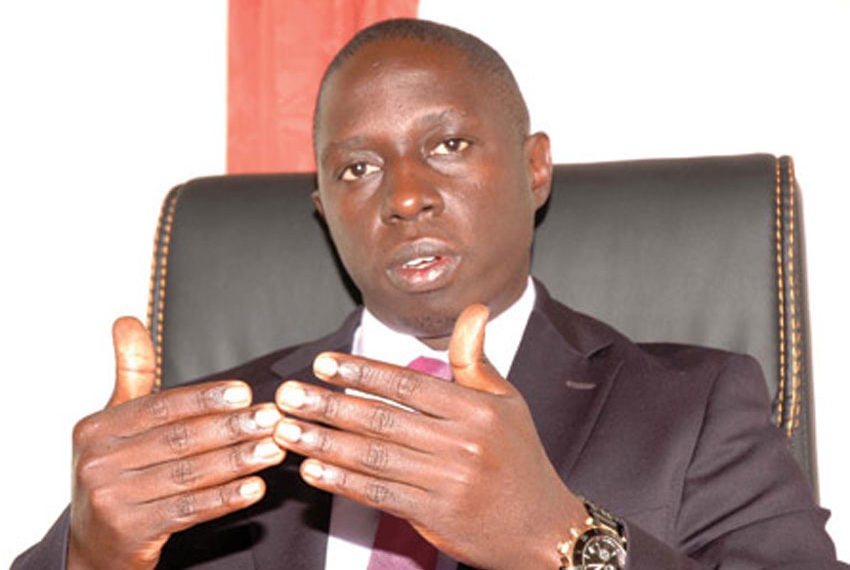Prime
Withdrawal of computer misuse Bill long overdue

Emilly Comfort Maractho
Once in a while we wake up to good news. That the Permanent Secretary at the Ministry of Information and Communication Technologies wants the Computer Misuse (Amendment) Bill halted and withdrawn is good news. It turns out, the ministry is in the process of bringing an encompassing Bill, 2022 (Information and Communications Bill, 2022) to address gaps in the ICT sector. I have on several occasions decried our piecemeal approach to media legislation in previous research.
According to sources close to the new law, it will repeal various inadequate laws including the UCC Act 2013, the Press and Journalist Act of 1995 and all aspects therein. It is suggested that the new law is in final stages, and ready for Cabinet approval, after which a nation-wide consultation will ensue.
After that a draft bill will be widely shared, consultations made, until a new law that is all encompassing, accepted and effective is in place. This is an important step given the glaring gaps in current laws.
Public policy making is largely considered a democratic process of acting on values to address problems affecting society. Yet, many of them are tragic in their outlook and outcome. Our problems of legislation are mainly three:
The first problem is that we do everything to tick the boxes and meet international standards. Those who are in the business of assessment will find the pieces fitting. For instance, you can check every single box for the presence of enabling legislation to promote freedom of expression and access to information.
From Articles 29 and 41 of the 1995 constitution that provide for media freedom and access to information, to Access to Information Act 2005.
However, a little below the surface often tells a different story with other laws littered that make the enjoyment of those freedoms difficult. And if you go an extra mile to look at the practice, you are faced with a real paradox of policy and practice.
The second problem, in the case of communication, has been keeping industry experts and actors out of the kitchen when the cooking is being done. Many of us who keep an eye on media policy and regulation find ourselves wondering who was consulted. Stakeholder consultation in legislation is tied to the hip of successful implementation.
One hopes that there will be deliberate attempts made this time, to avoid the pitfalls of the Press and Journalists’ Act of 1995. Crucial clauses did not see the light of day in implementation, outrightly rejected by the industry. As such, a government led process of professionalising the media did not achieve much while industry led efforts at self-regulation also failed.
The third problem is the narrow focus on minimising harm. The Computer Misuse (Amendment) Bill, 2022, with or without a comprehensive law in the offing, does not need to be considered. No doubt, 2011 is too long ago given the speed with which new developments in the cyber field emerge. But the narrow focus on punishment of misbehaviour is not helpful.
One hopes that the new breed of technocrats behind the new and comprehensive law not only appreciate the enabling nature of communication for development but are also committed to a robust legal framework that is enabling, and not overly driven by the need to punish misbehaviour. There are very critical issues that support a more comprehensive review of the legal and regulatory framework beyond misuse and social media abuse.
There are many big things that proponents of the Computer Misuse Amendment Bill should be concerned about. For instance, what do citizens need to know about doing business online? What should legislation be concerned about in cyber security and whose security? What does the current digital revolution mean for free expression and flow of information? How do we provide for media literacy for citizens to ensure their active and effective civic engagement?
Communication (media) policy today, for some scholars, in the very least should be seen to respond to the distinctive characteristics of, and unique problems posed by, mass mediated communications.
There is a conventional prerequisite in policy-making to ensure the inclusion of beneficiary population in policy making activities, not to come in the end asking what industry thinks of the law, having been excluded from participating from the beginning. It casts doubt on good will and if there is understanding of the key issues. How do we empower marginal communities? How do we support media to work?
It will be interesting to see how the new law relates with media, technology, telecommunication and industry from a policy perspective. More so, how it supports participation and interaction between the executive and parliament, civil society, science and technology communities, and industry. Often, industry has neglected voice in these matters or engaged to tick boxes.
Weakness in the policy process for the most part accounts for failure. While withdrawal of the Computer Misuse (Amendment) Bill is good news, the new comprehensive new law needs to find balance between promotion of information and communication as well as prevention and punishment of crime.
Ms Maractho (PhD) is the director of Africa Policy Centre and senior lecturer at Uganda Christian University.




